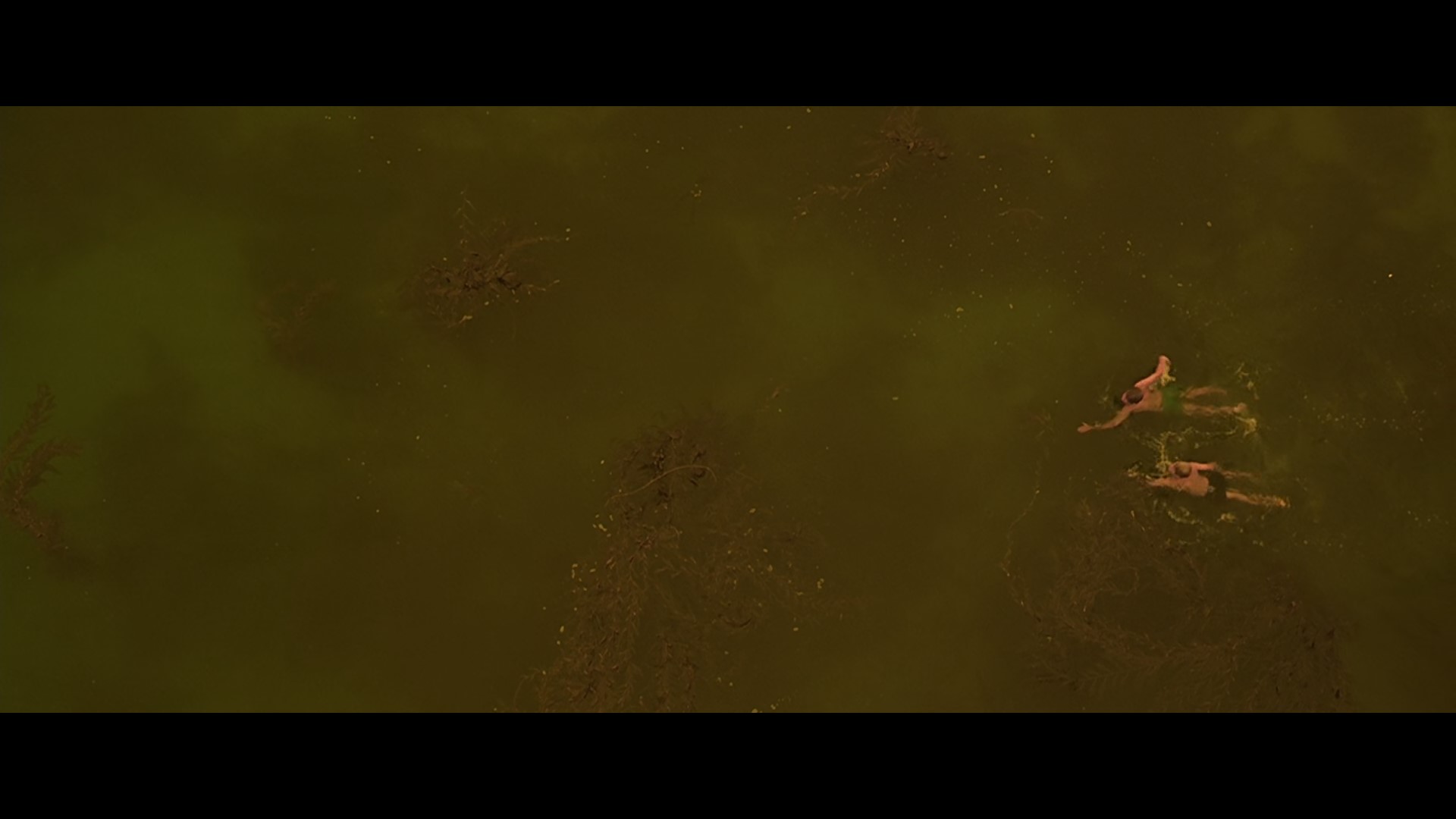I watched the movie Gattaca. Let’s consider whether dominant genes are always good.
Ever since T.H Morgan introduced the theory of genetics in 1926, stating that “the inheritance of living things is determined and governed by genes,” and Mendel and other experimental biologists discovered the existence of genes and the sequences that comprise them, there has been interest and discussion about the artificial modification of dominant individuals through genetic manipulation. This interest has become increasingly popular, and in 2012, a webtoon called “NoNameD” by South Korean artist Moon Ji-hyun, which depicts the end of a society composed of humans with only dominant individuals through genetic manipulation, began a series on Naver.
The movie “Gattaca” was released in 1998 and asks the question of whether the value of human beings artificially created to selectively possess only the dominant traits of their parents is truly superior to those born naturally. Vincent, who was born naturally through the love of his parents, realizes that he lacks the physical abilities and intelligence of his younger brother, who was created through artificial insemination with a superior factor. Vincent works tirelessly to overcome this, but he is not even given a chance to interview for a job because he has the recessive factor. He dreams of being an astronaut who flies to Saturn, but is forced to become a janitor, and by chance, he borrows the identity of Jerome Murrow. Freed from his status as a recessive factor carrier (an ineligible person), Vincent becomes Jerome Murrow and is recognized as one of the most talented employees of the aerospace company Gattaca. However, on the eve of a flight to Saturn, Vincent is involved in a murder that threatens to unmask him, but with the help of Irene and Jerome, he manages to fly to Saturn safely. A naturally born misfit realizes his dream among a group of genetically dominant people.

In the movie, not only height and vision, but also the strength of various organs and genetic diseases are controlled by selecting and controlling alleles at the embryonic stage before implantation, so that the child born is free from genetic diseases and has the optimal phenotype within a given gene. Socially, this would eliminate the chance of a child being born with a birth defect or dying from a genetic disorder, and economically, it would have a positive impact by significantly reducing the number of adopted children and the budget spent on disability and medical care.
However, making all children as tall, long-legged, and good-eyed as possible – i.e., homogenizing their phenotypes in a positive way in a social and biological sense – is not desirable from the perspective of the survival of the human species. Examples of where selection for dominant traits is inappropriate for the survival of the species can be found both in terms of physical phenotypes in vitro and chemical metabolism in vivo. In terms of adaptation to environmental change, however, individuals with well-proportioned bodies have a relatively larger surface area in contact with the air relative to their body volume than individuals with poorly proportioned bodies, which results in a greater heat exchange with the external environment as the temperature changes. In other words, individuals with poorly proportioned bodies may be socially disfavored recessives but are better adapted to rapid climate change. The relationship between sickle cell anemia and malaria shows that the dominant trait is not always adapted for survival, even when looking at the chemical metabolism of the body. Sickle cell anemia is a disorder in the genetic sequence that contains the information in red blood cells, causing the sixth amino acid in the red blood cell, glutamic acid, to be replaced by valine, resulting in a sickle-like structure rather than the original disk-shaped structure. This is called sickle cell anemia because the red blood cell’s structure is different from its original shape, and its ability to bind and carry oxygen is impaired, resulting in anemia, and it is a socially and biologically recessive trait. However, when a pathogen, such as malaria, exploits the host’s metabolic activity to proliferate, the membrane of the sickle cell is abnormally permeable, allowing potassium ions that are concentrated in the cell to escape out of the cell, causing the pathogen to become metabolically impaired. This principle allows socially and biologically recessive sickle cell anemia patients to develop resistance to the malaria pathogen, and indeed, during malaria epidemics in Africa, many people with normal red blood cells died, but the majority of sickle cell anemia patients were able to survive. As a result, selecting for a dominant trait to cure the second generation is not desirable for the survival of the human species. Socially and biologically, dominant individuals have internal organs that metabolize well and bodies that are highly athletic, but many pathogens and pathogens exploit the host’s metabolism, making them vulnerable to these diseases. A dominant trait can become a poison.
This logic can also be seen in the context of species safety in biology. Naturally occurring individuals have normally distributed traits and exhibit diversity, which minimizes the likelihood of extinction due to external shocks such as disease or environmental changes. On the other hand, if a population is genetically selected for dominant traits and has two generations, most people’s genetic traits will soon be skewed toward a certain set of traits that are considered dominant, and the risk of extinction by a disease that is lethal to the dominant trait, such as malaria, is very high. In the webcomic NoNameD, a generation of children created by selecting only for genetically dominant traits is wiped out by a cold caused by a mutant virus. In the case of viruses and pathogenic diseases, the rate at which gene sequence changes create variants is faster than the rate at which human immunity changes, so it makes more sense for human survival to maintain genetic diversity than to select for dominant traits to build a species.
Selection for dominant traits is also undesirable from a human well-being perspective. The clearer the criteria for what is good and bad, such as height, vision, organ function, and so on, the easier it is to categorize people. Even if only the best genes are selected for in the second generation, the scope is limited to the genes of the parents, so those who have more of the best genes will continue to pass on more of the best genes to their offspring, which can encourage social hierarchies based on genes. In addition, the formation of such a hierarchy could lead to the selection of mates and treatment of people based on their value as commodities rather than their value as human beings. In other words, genetic sequences could play the role of separating the rich from the poor that commodities played in capitalist societies. In other words, the purpose of superior genes is to create a species with superior phenotypes, not human happiness, and we need to critically examine the correlation between superior phenotypes and happiness.
Two parts of “Gattaca” that stood out to me were Vincent and his brother’s swimming bet in the ocean and Irene’s confession about her heart. Vincent and his brother have always had a bet that whoever swims out to sea and gets scared and turns back first loses, and his brother, who has the better genetics, always beats Vincent. In the final bet, Vincent beats his brother because, he says, “I go out without leaving myself the strength to turn back, but you always win and leave yourself the strength to turn back.” Similarly, Irene memorably tells Vincent about her limitations, telling him that her heart is not as strong as other genotypes and that she can only run so far.

I think what the author was trying to show through these two scenes is the negative impact of superior genes on human self-perception. People who are born with superior genes are aware of their excellence, but they are also aware of their quantifiable limitations. Vincent’s sister and Irene were also blessed with great physical attributes, but at the same time, they lived limited lives, trapped by their own quantified limitations. Vincent, on the other hand, despite being born naturally, is able to overcome his limitations through hard work. People who live with the knowledge of what their bodies are good at may have a stable life, but they are inherently deprived of the opportunity for self-actualization through effort that brings happiness to human beings. When the real Jerome, who is crippled and lends his identity to Vincent, says, “The day I was hit by the car, I was as sane as I’ve ever been in my life,” the artist asks a skeptical question about whether the dominant species, who are trapped within quantifiable limits, have the opportunity for true self-actualization. Instead of gaining genetically superior traits, they are deprived of the right to overcome their limitations through hard work and the right to think about themselves.
Furthermore, there is no inevitable link between the expression of dominance and the desired phenotype. Various traits such as height, eyesight, and violence are not simply determined by genetics, but are also influenced by life circumstances such as education. Therefore, even if a genetically perfect individual is created, it is not guaranteed by the influence of the environment. Just as Jerome’s boss in “Gattaca” was a murderer whose violent tendencies were not found in his genetic sequence, environmental influences can greatly reduce the effectiveness of genetic manipulation to create superior phenotypes.
As a result, the creation of generations with only dominant traits through genetic manipulation reduces the flexibility of human individuals to changes in their environment, and is more likely to be viewed as a means to an end rather than a means to human dignity and happiness. Furthermore, genes can lead to stratification and commodification of human beings, and since genetic factors are not a single factor that constitutes human phenotypes and are strongly influenced by the environment, there is a lack of certainty about obtaining the desired phenotype. Genetic manipulation is undesirable because it has more to lose than to gain.
 I’m a blog writer. I want to write articles that touch people’s hearts. I love Coca-Cola, coffee, reading and traveling. I hope you find happiness through my writing.
I’m a blog writer. I want to write articles that touch people’s hearts. I love Coca-Cola, coffee, reading and traveling. I hope you find happiness through my writing.